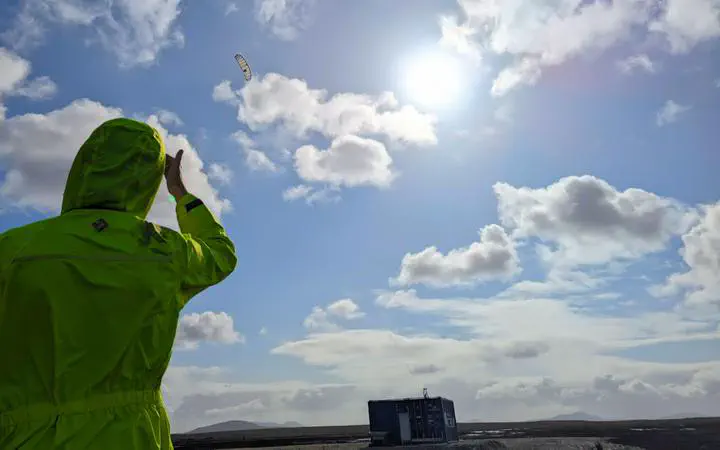Bridging research and application - Kitepower advances grid-compatible AWE systems

As part of the AWETRAIN project, Kitepower is contributing to the training of the next generation of Airborne Wind Energy specialists, while advancing research focused on the operational readiness of this emerging renewable technology.
Kitepower, a spin-off of Delft University of Technology, is hosting one of the project’s twelve doctoral researchers. The PhD candidate who is ultimately selected, jointly supervised by industry expert Claudio Vergara and Professor Roland Schmehl (TU Delft), will focus on improving the grid-serving behaviour of Airborne Wind Energy systems, an essential requirement for the future integration of kite-based energy solutions into national and regional electricity grids.
The research investigates how AWE systems can deliver more stable and controllable power output by exploring a range of design and operational strategies. These include aircraft and ground station configurations, phased system operation for power smoothing, and the use of weather forecasting and storage solutions. Metrics such as load balancing, frequency stabilization, and power factor control will be developed to assess how AWE can meet grid compatibility requirements. The goal is to define robust operational strategies that not only meet technical standards but are also adaptable to changing weather conditions.
Kitepower’s active involvement in AWETRAIN contributes to aligning academic research with industrial needs, reinforcing the project’s ambition to accelerate the industrialisation of AWE. The company’s ongoing field activities with its mobile 30 kW (Hawk) and 100 kW (Falcon) systems offer an applied framework to validate and implement research insights.
In parallel with its involvement in AWETRAIN, Kitepower recently launched a crowdfunding campaign via FunderNation to support the next phase of its commercial development.